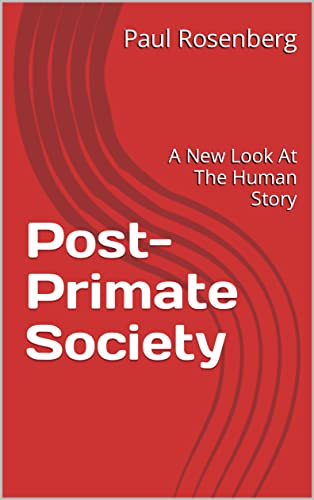Description
The role of primate influences in human affairs is profound. Examining this fact is greatly to our benefit, but can also be challenging.
Human society has been a broader version of primate society, but fundamentally of the same type. We, however, are no longer mere primates. If we are to develop further, we require post-primate arrangements.
Regardless that this book contains dozens of direct quotations from widely respected scientists, it addresses things that haven’t been addressed before. It opens a discussion that our world must have.

